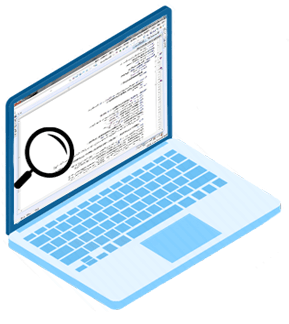Code Review Services
Overview
During application code reviews, our tech-experts work with customer's development team to deliver a more secure product.We conduct and elaborate inspections of application source code and assesses the vulnerability of the same. Please read the FAQ below to understand more about this offering.
Different studies and surveys shows that approximately 75% of attacks happen due to an insecure application, inside which includes insecure code. This is because Developers mostly tend to focus on the functionality of the application and ignore the secure coding approach.
Some Facts
Why code security review is needed?
Programmers often follow incorrect programming practices which leads to security loopholes. To mitigate the risks, it is important to perform code review to capture security loopholes, before the code it deployed on to live production systems. Code review and code analysis enables your developers to review, find, and eliminate vulnerabilities before an application goes live and helps software purchasers identify flaws in applications before they buy.
Many organizations use tools but it had been observed that this method has its own obvious limitations. Because of this, the inaccurate results can waste your developers' time in hunting down false positives, thus slowing development timelines to the point where competitiveness suffers. But with the security of your enterprise on the line, you need some way to review code quickly and cost-efficiently. That's where Valency Networks can help.
What is the approach that is followed during a code security review?
Valency Networks uses an Agile as well as Heuristic approach during code review. This helps customer gain best value for their money without compromising on the security vulnerability outcome of the review and assessment. Figure below explains our methodical approach.
Which programming language are supported for code security review?
As of today, we primarily focus the following :

Browser side :
- CSS/HTML
- JavaScript
- VBScript
- AJAX
Server side :
- PHP (all versions)
- ASP.NET (all versions)
Database calls :
- Microsoft SQL
- MySQL
- PostGres
- Oracle





